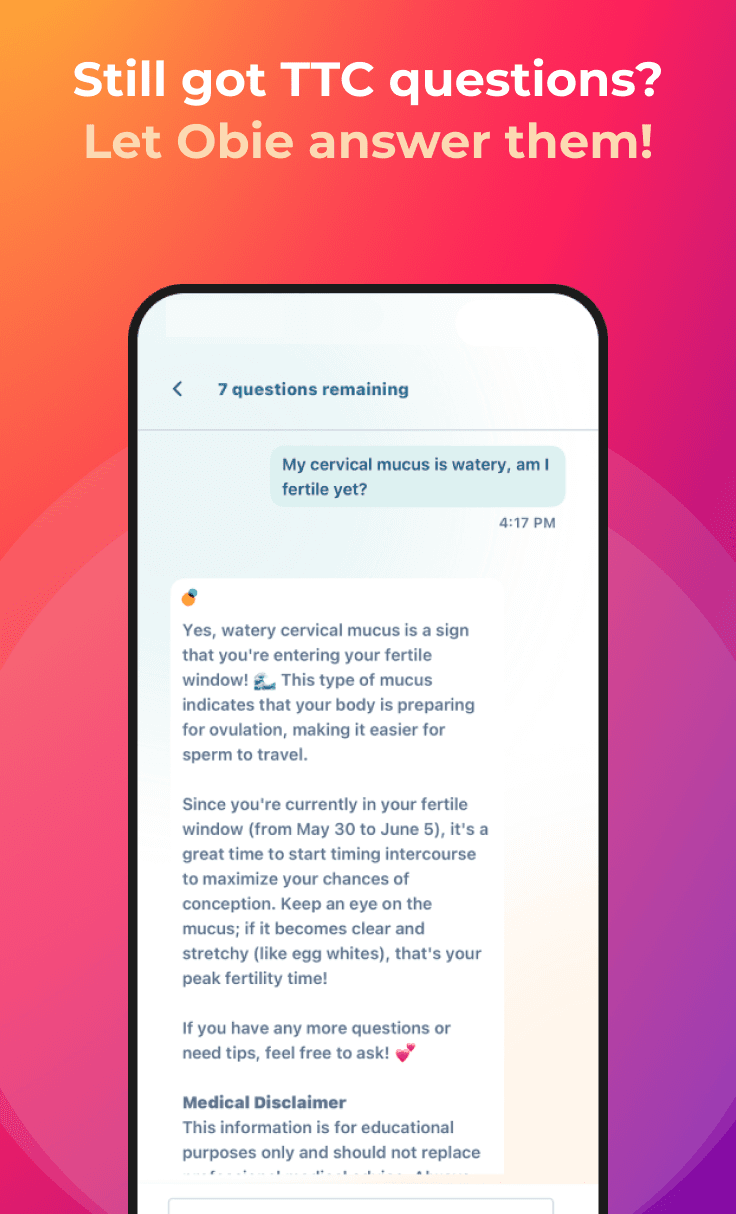Fertility After Miscarriage
Miscarriage
Obie Editorial Team

Your fertility is directly related to when and if you ovulate
Ovulation, and with it your fertility, usually happens within 2-6 weeks after an early miscarriage. When you are pregnant, you usually do not ovulate. When you miscarry, your body recognizes that you are not pregnant anymore, starts developing a follicle and you ovulate. The longer you were pregnant when you had that miscarriage, the longer it may take on average for ovulation and your fertility to reappear.
How does miscarriage affect fertility?
Fertility may be actually be improved following a miscarriage. There is some scientific evidence that you may even be a little more fertile for a couple of months after a miscarriage. After that time, it returns to normal.
What are the chances of having a miscarriage next time?
Experts agree that one miscarriage does not predict future ones. Otherwise healthy women who have had miscarriages have an 85 percent chance of carrying the next pregnancy normally. There is no increased risk unless the woman is over 35 years of age and has had more than two miscarriages.
A woman's normal fertility level should return within four to six weeks after the miscarriage when ovulation starts and her cycle begins to function as normal again.
When is the right time to try again?
When a woman's cycle returns to normal, her body is capable of becoming pregnant again. However, that doesn't mean it's the right time for a couple to try for another pregnancy just yet.
After a miscarriage, a doctor should evaluate a woman's medical history and her current state of health to determine when her body is healed enough to carry a baby. Some women's bodies are ready within four to six weeks, while it takes others up to six months to be physically ready again.
Also, there's more to consider than just the physical aspect. The couple needs to evaluate their emotional health. Likely, there are feelings of loss, guilt, and sadness that must be dealt with before getting pregnant again, and understanding that the next pregnancy won't replace the lost one.
What are some ways to increase fertility after a miscarriage?
If you are certain you and your partner are ready to conceive again, there are a few things you can do to help improve your chances of becoming pregnant:
- The first thing to do is to stop any unhealthy habits. These include smoking, drug use, or alcohol abuse. It's been reported that high consumption levels of caffeine can be detrimental to conception so that should also be limited.
- Reducing or eliminating stress also helps. Stress management is thought to be one of the most important factors in having a successful pregnancy and may also play a role in fertility.
- Eat well. If depression was experienced due to the miscarriage, it's possible that the woman's diet has not been the healthiest. It's common for women who have experienced a miscarriage to have a loss of appetite and not eat enough or to eat out of sorrow and eat too much.
The decision to try again is not an easy one, but in most cases, fertility won't typically be an issue.









